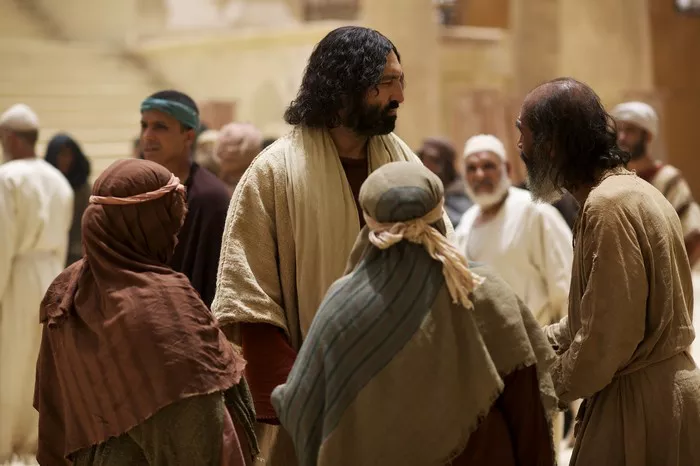Matthew, also known as Levi, was one of the twelve apostles chosen by Jesus Christ to spread his teachings and establish the foundation of Christianity. His encounter with Jesus is a pivotal moment in Christian history, marking the beginning of his journey as a disciple and evangelist. Let’s delve into the precise details of how Matthew met Jesus and the transformative impact it had on his life.
1. Background of Matthew
Before delving into the encounter between Matthew and Jesus, it’s essential to understand Matthew’s background. He was a tax collector in Capernaum, a profession despised by many in Jewish society during the first century. Tax collectors were often seen as collaborators with the Roman authorities and were viewed with suspicion and disdain by their fellow Jews.
2. The Call of Matthew
The Gospel of Matthew provides a detailed account of the moment when Jesus called Matthew to follow him. Matthew 9:9 states, “As Jesus went on from there, he saw a man named Matthew sitting at the tax collector’s booth. ‘Follow me,’ he told him, and Matthew got up and followed him.” This succinct verse encapsulates the simplicity and power of Jesus’ call to discipleship.
3. A Radical Invitation
Jesus’ invitation to Matthew was radical in its simplicity and directness. With just two words, “Follow me,” Jesus extended an invitation that would alter the course of Matthew’s life forever. Despite the societal stigma attached to his profession, Matthew did not hesitate to respond to Jesus’ call. His immediate obedience highlights the magnetic allure of Jesus’ personality and message.
4. The Tax Collector’s Response
Matthew’s response to Jesus’ call is noteworthy for its immediacy and decisiveness. Unlike some of the other disciples who had prolonged deliberations or conditions attached to their decision to follow Jesus, Matthew’s response was swift and unwavering. His willingness to leave behind his lucrative career as a tax collector underscores the depth of his commitment to Jesus.
5. Sharing a Meal with Jesus
Following his call to discipleship, Matthew hosted a dinner in his home, inviting Jesus and other tax collectors and sinners to join him. This act of hospitality and inclusion reveals Matthew’s desire to introduce his former colleagues to the transformative message of Jesus. Despite the social stigma associated with associating with tax collectors and sinners, Jesus readily accepted Matthew’s invitation, demonstrating his radical approach to ministry.
6. Confrontation with the Pharisees
The dinner hosted by Matthew led to a confrontation between Jesus and the Pharisees, who questioned why he would choose to associate with tax collectors and sinners. Jesus responded by stating, “It is not the healthy who need a doctor, but the sick. But go and learn what this means: ‘I desire mercy, not sacrifice.’ For I have not come to call the righteous, but sinners” (Matthew 9:12-13). This exchange highlights Jesus’ mission to reach out to those who were marginalized and in need of spiritual healing.
7. Transformation of Matthew
Matthew’s encounter with Jesus marked a profound turning point in his life. As a tax collector, he was accustomed to a life focused on material wealth and societal status. However, his encounter with Jesus compelled him to reevaluate his priorities and embrace a new way of living centered on faith and discipleship. The transformation of Matthew serves as a powerful testament to the redemptive power of Jesus’ message.
8. Following Jesus as a Disciple
After responding to Jesus’ call to follow him, Matthew became one of his closest disciples, accompanying him on his ministry throughout Galilee and beyond. As a witness to Jesus’ teachings, miracles, and ultimately his crucifixion and resurrection, Matthew played a vital role in documenting the life and ministry of Jesus. His Gospel account provides invaluable insights into the life and teachings of Jesus Christ.
9. Role in the Early Church
Following Jesus’ ascension, Matthew continued to play an active role in the early Christian community. Tradition holds that he preached the Gospel in various regions, including Ethiopia and Persia, before eventually suffering martyrdom for his faith. His enduring legacy lives on through his Gospel, which continues to inspire and instruct Christians around the world.
Conclusion
Matthew’s encounter with Jesus was a transformative moment that altered the trajectory of his life. From being a despised tax collector to becoming a devoted disciple and evangelist, Matthew’s journey exemplifies the power of Jesus’ call to follow him. His Gospel account serves as a timeless testament to the life, teachings, death, and resurrection of Jesus Christ, ensuring that his impact continues to be felt throughout the ages.

